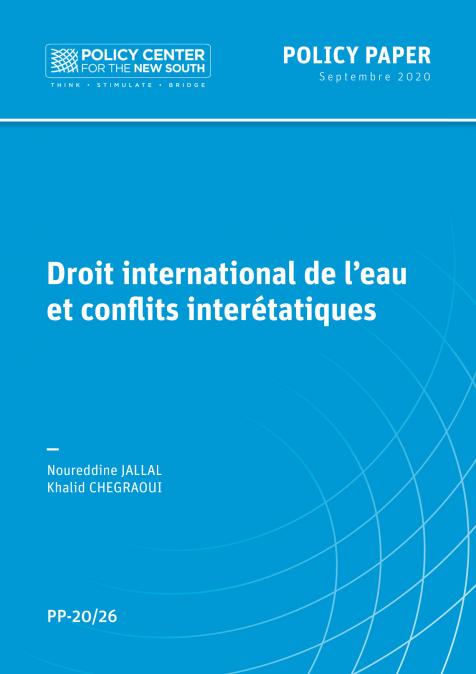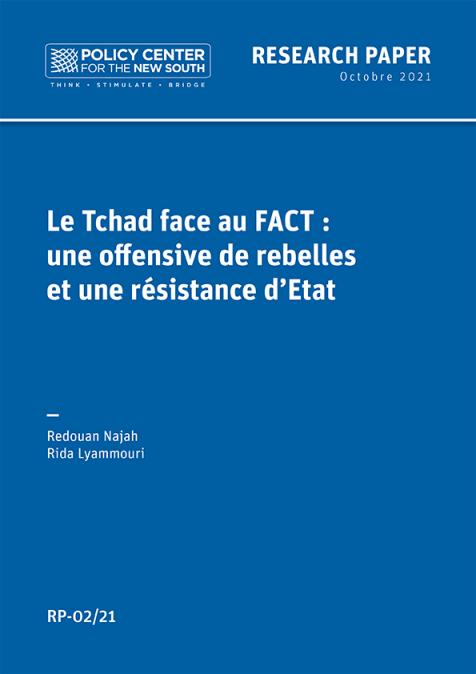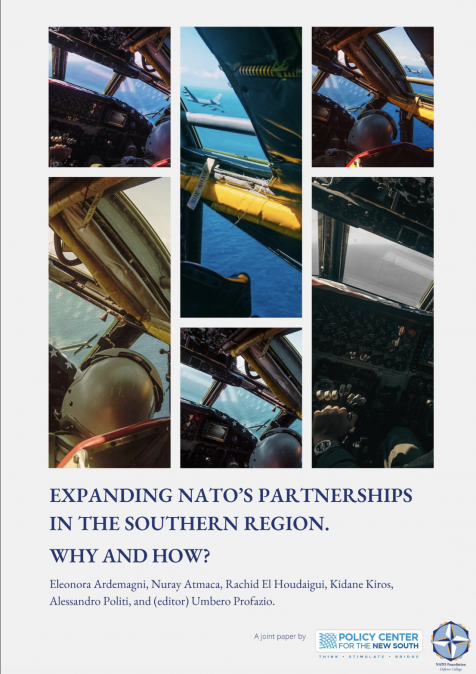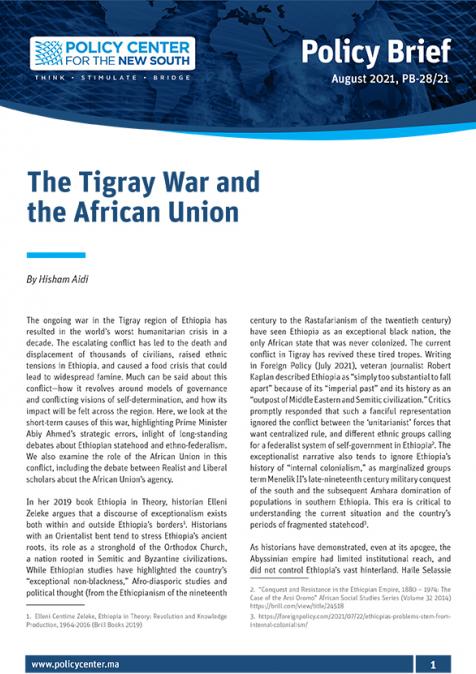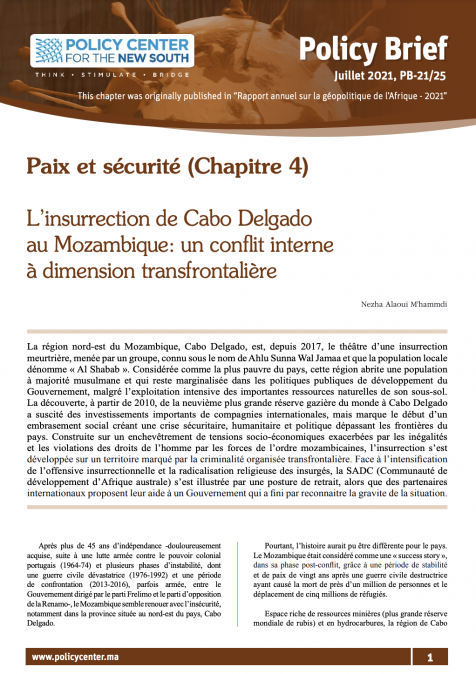Publications /
Policy Paper
Il semble pertinent, avant d’exposer un sujet aussi important qu’actuel, d’apporter deux remarques nécessaires. Elles auront la finalité, à la fois, de préciser les contours du sujet et de prendre en considération la réalité du droit international. La première remarque consiste à faire la distinction entre le droit international de l’eau et le droit international à l’eau. Ce dernier constitue un avatar du corpus du premier et une étape nouvelle dans sa « juridicisation » et son évolution. En effet, c’est dans la foulée de l’extension du spectre que couvre les droits humains, que ce droit a pris son chemin comme une obligation qui incombe aux États, celle de garantir l’accès à l’eau potable pour l’ensemble de ses ressortissants. Il y va, également, de l’importance de ce droit et de ses conséquences sur la sécurité sanitaire. Car, la privation de l’eau constitue un facteur aggravant des maladies. Il est devenu même un impératif substantiel pour assurer tout développement économique et social. Cependant, force est de constater que ce droit n’est pas encore expressément reconnu en tant que droit humain.

